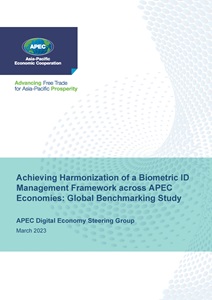
Proceedings
APEC Workshop on Promoting Decarbonization of Power Sector by Using Carbon-Free Energy (CFE)
The Asia-Pacific Economic Cooperation (APEC) is a regional economic forum established in 1989 to leverage the growing interdependence of the Asia-Pacific.
The Asia-Pacific Economic Cooperation (APEC) is a regional economic forum established in 1989 to leverage the growing interdependence of the Asia-Pacific.
APEC ensures that goods, services, investment and people move easily across borders. Members facilitate this trade through faster customs procedures at borders; more favorable business climates behind the border; and aligning regulations and standards across the region.
APEC ensures that goods, services, investment and people move easily across borders. Members facilitate this trade through faster customs procedures at borders; more favorable business climates behind the border; and aligning regulations and standards across the region.
APEC works to help all residents of the Asia-Pacific participate in the growing economy.
APEC works to help all residents of the Asia-Pacific participate in the growing economy.
Capacity building projects play an important role in helping translate APEC's goals into reality.
Capacity building projects play an important role in helping translate APEC's goals into reality.

Reports
•March 2023
Download Report
4MB
Published Under
Committee on Trade and Investment (CTI), Digital Economy Steering Group (DESG)
Accessed
1749
Pages
84
Prior to COVID-19, several identity management projects aimed at facilitating paperless cross-border air travel were being planned or implemented in line with International Air Transport Association (IATA)’s One ID concept among APEC economies. However, solutions adopted independently by APEC economies often lacked harmonization and interoperability, decreasing the benefits of end-to-end seamlessness, efficiency, and security. Since then, the COVID-19 crisis has reinforced the need of a frictionless and interoperable process that minimizes disease-spreading physical touchpoints and smoothen passenger journey, so as to facilitate air travel recovery. This situation presents an opportunity to harmonize solution planning and rollout across APEC economies. The project aims to: (i) Assess the current level of Biometric ID awareness, understanding, and maturity among APEC economies by conducting interviews; (ii) Learn from non-APEC implementations by conducting global benchmarks; and (iii), Provide a practical guideline on Biometric ID adoption for harmonization across all APEC economies.
This global benchmarking study provides introduction to biometrics and its adoption in air transport around the world and among APEC economies; key drivers of adopting biometric identity in APEC economies; regional biometric maturity assessment among APEC economies; biometric identification management applications in aviation; and challenges and issues faced and the proposed solutions.

